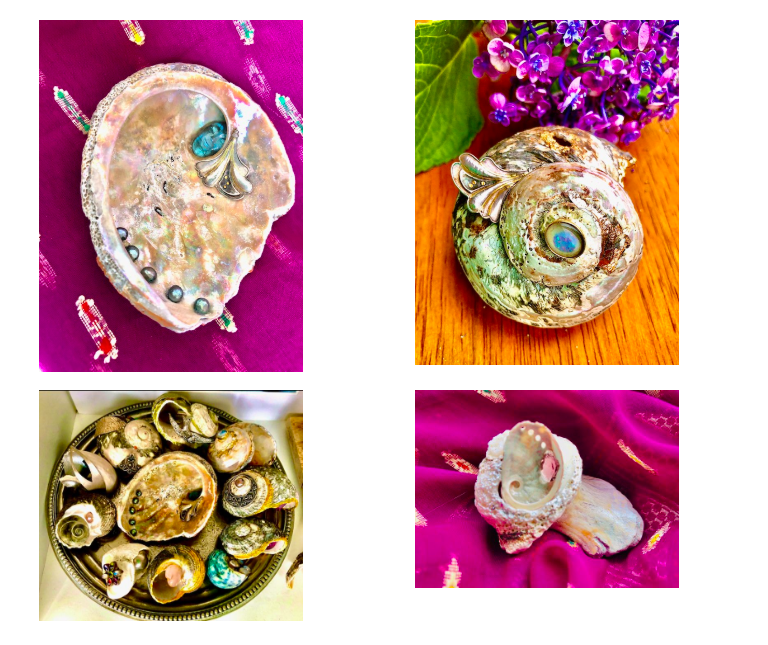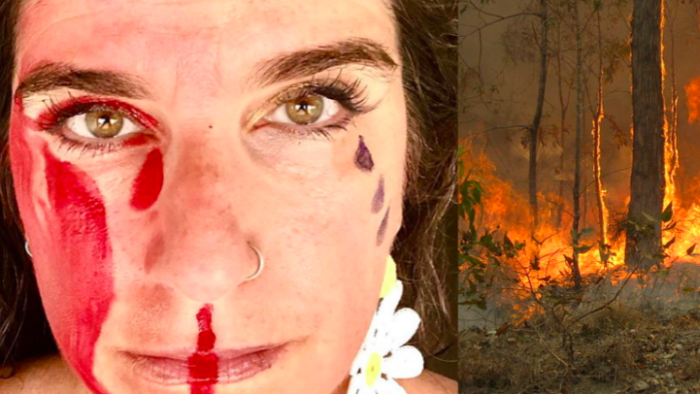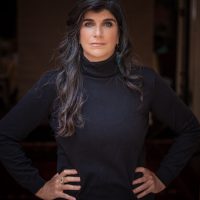“I didn’t know I loved the earth
can someone who hasn’t worked the earth love it
I didn’t know I loved the sky
cloudy or clear
I didn’t know I loved trees
I didn’t know I liked rain
whether it falls like a fine net or splatters against the glass
I didn’t know I loved so many things and I had to wait until sixty
to find it out sitting by the window on the Prague-Berlin train
watching the world disappear as if on a journey of no return.” ~ Nazim Hikmet
~
I’ve been thinking about Nazim Hikmet’s poem “Things I Didn’t Know I Loved” each morning as the eerie pink sun rises through the smoke haze.
I didn’t know I loved a golden sunrise. Opening my window to let in fresh air. Dark stormy clouds that shatter with rain.
‘”Only know you love her when you let her go,” Passenger sings. “And you let her go…”
My late Granny Bee used to say, “If you have nothing nice to say, rather say nothing at all.”
She meant this in the context of an unfortunate outfit choice, but it applied to the losses of her life. I once tried to get her to talk about her mother’s death from tuberculosis when she was 16 (her mother just 36), and the miscarriage at six months of her unborn son. But the most I could wrestle from her was, “My darling, in those days, you just got on with it.”
Getting on with it, plastering grief with politeness made my granny a fabulous liar. She could mask pain with a dab of powder, a sweep of blush, and a smidge of lipstick. She was, above all, a lady and it was decidedly unladylike to speak of hard things.
I’ve tried to live by her “be nice or be quiet,” principle. My online personality is as an optimist, motivator, cheerleader. I am, by nature, an enthusiast, so I haven’t had to lie much to keep this persona up.
But, dear friends, I’m all out of nice.
As fires have raged across Australia, we are in a time of irreparable loss—millions of animals and ecosystems are burning, our oceans are coated in ash, our air is barely breathable, and our government remains in denial about climate change.
I am close to tears all the time. I’m confused, saturated with grief, and my New Year’s Eve was characterized by my fury that Sydney went ahead with fireworks and our PM took a little “well-deserved break” in Hawaii while firefighters cancelled their Christmas lunches to save homes and lives.
So, I’ve gone quiet. I haven’t wanted to inflict my agony on any of you good people, dealing with your own agonies.
I have no bloody idea what is being asked of me and how to be of service anymore, amidst the chaos, choking smoke, and unrelenting despair.
Some days, my only solace has been an ocean swim when the air outside is breathable and the ocean is not toxic with ash. I’ve been collecting shells the ocean sends my way, diving deep down to the seafloor to retrieve them. I only take the broken ones—little elders of the sea. I started adorning them with bits of silver and gold jewellery, gold leaf, precious, and semi-precious stones. I’ve called them “ocean kintsugi” shells. I’m going to fill them with healing prayers. When the time comes, I will take them to places that have been ravaged by suffering and grief, and plant them there.

In Australia, bushfire warning systems alert people about the fire danger to help them make decisions about whether to evacuate or stay and defend their properties.
If it’s “too late to leave,” you’re stuck. There is no way out. The roads are closed. You’ve left your decision to evacuate too long either because you were overly optimistic that the fire wouldn’t come close enough or you were in denial about the severity of the threat. Either way, you will have to defend your property with your life, and pray.
This is exactly where we find ourselves—all of us. Climate change is upon us; it has arrived. This is not a drill. It’s not a mild threat, it’s a catastrophic one. And it’s too late to leave.
So, what do we do now?
The way I see it, we have two choices. We can remain in denial and carry on with our lives-as-before, hoping we can outrun it.
But if we do, we become the dead weight those who are conscious, awake, and taking action have to lug with them. We’re taking up space and resources and making their work much, much harder. It’s the selfish option and we’re kind of running out of room for selfish on this tired little blue globe.
Or, we can face head-on what is coming our way, which is more of what is already unbearable. To do this, we need to be well prepared for the interminable griefs that are still to come.
None of us is protected from what lies ahead. Our wealth, status, or distance from Australia won’t save us. Every single living human being right now is bound and affected by this omnicide (the destruction of all life around us) and solastalgia (ecological grief for the worlds we are losing).
And if we cannot come together as one now, well, folks, we’re truly f*cked.
Australia is the canary in the coal mine for the rest of the world.
Please let our devastating losses not be for nothing.
Here it is—the defining moment where we can change.
Maybe we cannot alter the trajectory of destruction that awaits, but we can change who we are and how we travel forward into this burnt new world.
Here are some soulful ways in which we might evolve:
Can we drop the “me-me-me” shtick? Can we conceive a future defined by values other than money and our own personal comfort? Are we able to treat every human, animal, and plant species as something other than a resource put here for our personal benefit?
Can we remember (Australia, I’m talking to you), that there is a karmic cost to turning away every refugee or displaced person who arrives on our shores on a boat? That there is a legacy to coal mining? That the reason the world has not rushed to our shores to help put out our fires is because we are an arrogant, racist, smug island lead by a PM who believes a good old game of cricket will cure a summer of devastating fires? Can we listen to indigenous wisdom? Can we stay humble and humane?
Here we are, then—in a time when we’re remembering all the things we didn’t know we loved because they are disappearing around us. The era of self-help is over—I’m sorry if you missed your chance to be the best version of you.
But it’s okay. What each of us wants personally or individually is, frankly, irrelevant. If we continue our carbon-heavy overseas holidays, avocado smash brunches, and shopping sprees, let us do so, knowing that we’re fiddling while Rome is burning.
Our children’s futures depend on our ability to think transpersonally about the years ahead—in other words, even if it doesn’t suit us, or it doesn’t personally benefit us (as in planting trees under whose shade we will never get to sit). This is our chance to rethink how we spend our time and money; and to stop wasting time, resources, electricity, water, and energy.
We can each take responsibility for the tiny corner of the planet we’re lucky enough to still inhabit and do what we can to heal it.
We can’t fix the whole damn catastrophe. But we can’t do nothing. Please don’t throw up your hands because you think, “What’s the use of doing this one small thing?”
Your small thing holding hands with my small thing and everyone else’s small thing might just tip the scales.
Let’s do everything to become people who deserve the earth we didn’t know we loved.
Let’s not let her go.
Even if she decides to let us go.
~







Read 2 comments and reply